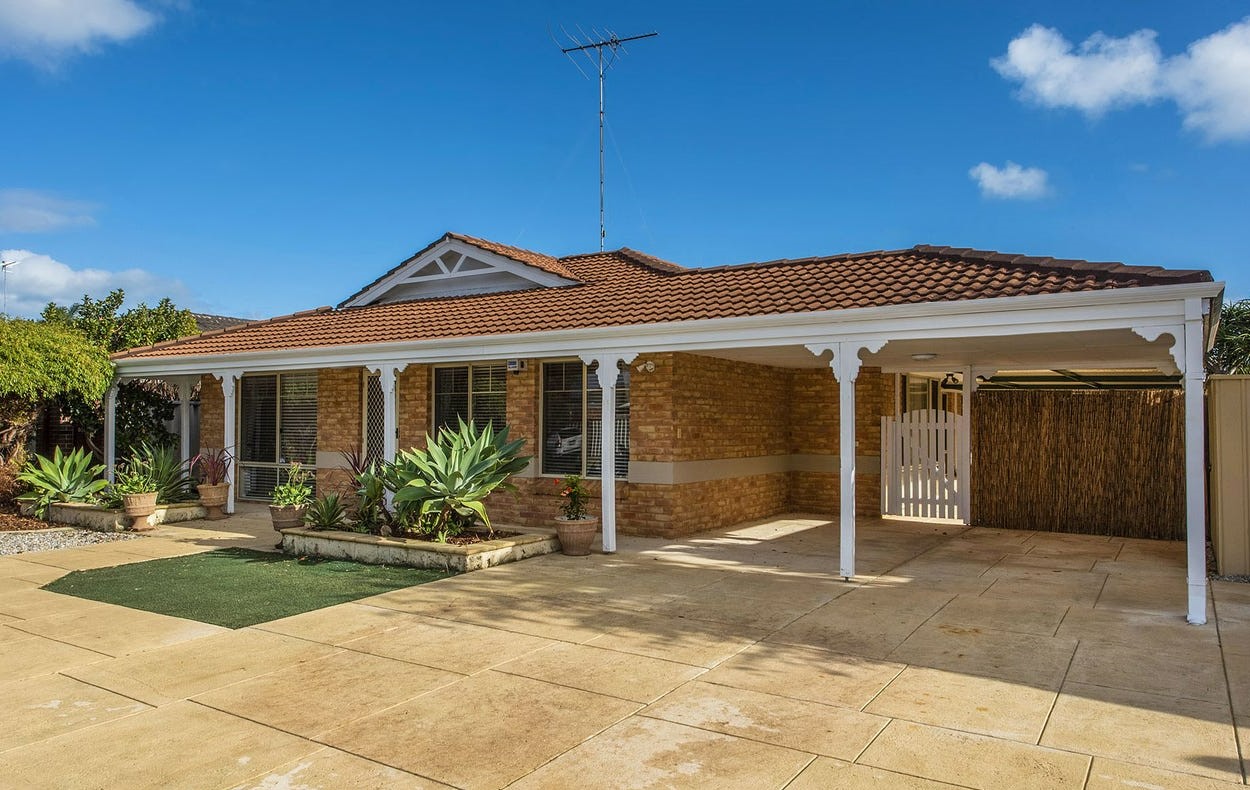
How to avoid capital gains tax on investment property
Transforming a property into a successful investment brings a deep sense of satisfaction. You’ve identified potential, nurtured its value, and now stand to reap the rewards.
A portion of your hard-earned profit, built through years of strategic planning, vanishes into capital gains tax.
This can be a disheartening reality for any investor. So now the question arises: Can we get rid of the taxman partly or fully?
For that, we first need to get the basics right.
Understanding capital gains tax
Owning investment properties can be a fantastic way to build wealth. But when it comes time to sell and collect your profits, there’s one hurdle to jump: capital gains tax (CGT).
CGT is the tax on the profit you make from selling your investment property i.e., the government taking a slice of your profits. While it might feel discouraging, here’s the good news: there are legal ways to minimize this tax and keep more of your hard-earned money.
key strategies to avoid capital gains tax
Primary residence exemption
“Designating a property as your primary residence can exempt you from CGT”
CGT does not apply to the sale of a property designated as your primary residence, or Principal Place of Residence (PPOR). This exemption is based on the notion that the home is used for personal living and not as an income-generating investment.
When a property is sold that has been used as the homeowner’s main residence, any capital gain from the sale is typically exempt from CGT.
But there are certain conditions to qualify for the primary residence exemption:
- The property must have been the main residence for the entire period the owner had possession.
- The property should not have been used to generate assessable income – meaning no part of the property was rented out or used for business.
- The land on which the house is situated must be 2 hectares or less.
Temporary absence rule
“Maintain a property’s status as a primary residence for up to six years, even if it is rented out”
The Temporary Absence Rule allows property owners to rent out their primary residence for up to six years while maintaining its status as their main residence for CGT purposes.
This basically means you can generate rental income from the property without losing the CGT exemption, provided the property is not used to produce income for more than six consecutive years.
Again, there are some conditions we should know:
- You must have lived in the home as your main residence immediately before renting it out.
- You cannot treat another property as your main residence during this period (except for a limited overlap of up to six months if acquiring a new home).
The 6-year rule
“6-year rule can benefit property owners who rent out their former primary residences”
The CGT 6-Year Rule is an extension of the Temporary Absence Rule.
Imagine you had to move out of your home for a while, but you still have a plan to return someday. The good news is, if you rent it out for a short time, you might be able to avoid capital gains tax when you eventually sell it. .
Here’s how it works:
- This house was once your primary residence.
- For some reason, you need to move out for a while.
- Instead of leaving it empty, you decide to rent it out to generate some income.
- The 6-Year Window: Here’s the key part! As long as you sell the property within six years of moving out, you can still claim it as your main residence for the entire period, even while it was rented.
Why is this helpful? Because claiming it as your main residence can potentially exempt you from capital gains tax on the sale. So, even though you weren’t physically living there for a bit, the taxman might still consider it your “home base” for tax purposes.
Example: John lived in his Sydney home for five years, then moved abroad and rented out the house. He sold the property five years later. Under the 6-Year Rule, John can claim the property as his primary residence for CGT purposes, exempting the entire gain from CGT.
Investing through self-managed superannuation fund (SMSFs)
SMSFs is a type of retirement savings account in Australia that gives members more control over their investments compared to traditional superannuation options.
Unlike larger funds, you and a small group (up to six individuals) act as trustees, managing the fund yourselves as this offer greater flexibility in investment choices.
Benefits of buying investment property through SMSFs can offer significant tax advantages:
- During the Accumulation Phase: Rental income earned by the SMSF is taxed at a concessional rate of 15%, significantly lower than personal income tax rates, which can be as high as 45%. If the property is sold after being held for at least 12 months, a one-third discount on CGT applies, effectively reducing the CGT rate to 10%.
- During the Pension Phase: When the SMSF is in the pension phase, the income from the property is tax-free, and no CGT is payable on the sale of the property. This tax exemption helps the SMSF maintain a healthy level of assets, ensuring a strong foundation for your ongoing pension payments.
These strategies provide avenues for property investors to minimize their CGT liabilities legally. Proper understanding and application of these rules can lead to substantial savings and more efficient tax planning in property investment scenarios.

Reducing capital gains tax if not avoidable
Several strategies can be employed to legally reduce this tax burden:
50% CGT discount for properties held over 12 months
If you hold a property for more than one year before selling it, you qualify for a 50% discount on the CGT. This means if your capital gain on the sale is $100,000, only $50,000 is considered taxable income. This discount significantly reduces the tax you owe, making long-term investments more appealing.
Increasing the cost base
Increasing the cost base of your property reduces the capital gain, which is the difference between the selling price and the cost base.
Although this may sound illegal, it’s not. Here’s how to legally increase your cost base:
- Purchase Costs: These include the purchase price, stamp duty, legal fees, and Investment property buyers agent fees involved in the acquisition.
- Improvement Costs: Money spent on renovations or improvements that add value to the property can be added to the cost base. For instance, costs incurred in constructing an extension, landscaping, or modernizing a kitchen.
- Ownership Costs: Ongoing costs such as council rates, property taxes, and insurance may be included if the property was not income-producing.
Lets understand with a simple example:
Imagine you purchased an investment property in 2015 for $400,000, including stamp duty and legal fees. Over the years, you spent $50,000 on improvements and $30,000 on property taxes and insurance. In 2023, you sell the property for $650,000. Your cost base would be $480,000 ($400,000 + $50,000 + $30,000), resulting in a capital gain of $170,000. With the 50% CGT discount, you only declare $85,000 as taxable capital gain.
These methods are not only legal but encouraged by tax systems to promote investment and property upkeep.
At the Investor’s Agency, we ensure you are applying these strategies correctly and to your best advantage.
CHAT TO US
BOOK A CALL WITH OUR EXPERTS! ALL YOU NEED IS $65,000
With $65,000 in savings or equity, you can begin or grow your investment portfolio with high-growth properties in Australia's strongest property markets.
Advanced strategies
Impact of different ownership structures on cgt liabilities
Individual Ownership
This is the most straightforward ownership form where an asset is owned directly by an individual. CGT is calculated on the capital gains at the individual’s personal income tax rate.
If you buy an investment property for $300,000 and sells it later for $450,000, realizing a capital gain of $150,000 and your marginal tax rate is let’s say 37%, your CGT liability would be significant—potentially $55,500, assuming no other deductions or discounts apply.
While individual ownership is simple and does not require complex legal structures, it may lead to higher CGT if the individual’s income places them in a high tax bracket.
Partnerships
In a partnership, two or more individuals or entities own an asset together. CGT is not paid by the partnership itself. Instead, each partner includes their share of the capital gain or loss in their personal tax returns and pays CGT according to their personal tax rates.
Example: If Bob and Carol own a property as partners and sell it, each reports half of the capital gain on their tax returns. If they gain $100,000 on the sale, each declares $50,000. If Bob is in a 19% tax bracket and Carol in a 32.5% bracket, Bob would pay $9,500, and Carol would pay $16,250 in CGT.
This structure can be advantageous if one or more partners are in lower tax brackets, potentially reducing the overall CGT liability compared to individual ownership.
Trusts
A trust is a legal entity where a trustee holds assets for the benefit of the trust’s beneficiaries. Trusts can distribute capital gains among beneficiaries, which can be advantageous for CGT planning.
Suppose a trust owns a property that is sold for a capital gain of $200,000. The trustee can distribute this gain among several beneficiaries, who might each be in lower tax brackets. If the gain is split among four beneficiaries, each receiving $50,000, their lower marginal tax rates can significantly reduce the total CGT paid compared to if one person were taxed on the entire gain.
Conclusion
While capital gains tax might seem like a roadblock on your property investment journey, it doesn’t have to be a dead end. By understanding the rules and implementing smart strategies, you can significantly reduce your tax burden and keep more of your hard-earned profits.
You can turn that potential tax headache into a celebratory high five with your future self! When in doubt, remember, we at the Investor’s Agency can ensure you’re on the right track to maximizing your return on investment.
WHAT OUR CLIENTS THINK OF US
 Gemma Kim2024-04-04We worked with TIA to purchase our first investment property. We were a bit nervous to take the leap initially. However, the team were so helpful and supportive throughout the whole process. The process was clear and informative at every step. The team were readily available to answer questions. Thanks to the team and their expertise we have walked away with an incredible investment property which is already showing signs of return and growth after a very short period of time. We have full confidence in TIA and we look forward to working with them again for the next investment opportunity.
Gemma Kim2024-04-04We worked with TIA to purchase our first investment property. We were a bit nervous to take the leap initially. However, the team were so helpful and supportive throughout the whole process. The process was clear and informative at every step. The team were readily available to answer questions. Thanks to the team and their expertise we have walked away with an incredible investment property which is already showing signs of return and growth after a very short period of time. We have full confidence in TIA and we look forward to working with them again for the next investment opportunity. Yechan Kim2024-04-04Amazing service and attention to detail from the entire team. We managed to secure a fantastic investment property as a great price. The research, information, communication is levels above other buyer's agents. Will be coming back for 2nd and 3rd properties.
Yechan Kim2024-04-04Amazing service and attention to detail from the entire team. We managed to secure a fantastic investment property as a great price. The research, information, communication is levels above other buyer's agents. Will be coming back for 2nd and 3rd properties. Noah Chen2024-04-04Absolutely elated to choose The Investors Agency as my buyers agent. I have bought 2 properties with The Investors Agency, first one with Bobby in 2020 and second time with Mitch & Mike in 2024. I came back because of the strong results with my first property and also the service the team provided. TIA always made me feel comfortable with decisions and always informed and work hard to get the best deal which suit our investment needs. Their process and technology is top-notch and makes the investment property purchasing journey very stress free all the way to post-settlement. I found the value of TIA as my buyers agent through off market deals, time-savings, a deep understanding of growing markets and the detail of property inspections/information for an interstate property. I will definitely recommend building your investment property portfolio with TIA as it’s been a great journey for me.
Noah Chen2024-04-04Absolutely elated to choose The Investors Agency as my buyers agent. I have bought 2 properties with The Investors Agency, first one with Bobby in 2020 and second time with Mitch & Mike in 2024. I came back because of the strong results with my first property and also the service the team provided. TIA always made me feel comfortable with decisions and always informed and work hard to get the best deal which suit our investment needs. Their process and technology is top-notch and makes the investment property purchasing journey very stress free all the way to post-settlement. I found the value of TIA as my buyers agent through off market deals, time-savings, a deep understanding of growing markets and the detail of property inspections/information for an interstate property. I will definitely recommend building your investment property portfolio with TIA as it’s been a great journey for me. Eric Marchant2024-03-26The Agency gives solid financial advice and backs it up with the support needed to implement it
Eric Marchant2024-03-26The Agency gives solid financial advice and backs it up with the support needed to implement it Noa Lamm2024-03-16We're thrilled to share our positive experience with The Investors Agency. When we were searching for an investment property in Perth, they proved to be the perfect partner for us. From the outset, The Investors Agency demonstrated professionalism, attentiveness, and a deep understanding of the real estate market. They listened carefully to our investment goals and worked tirelessly to find us a property that aligned perfectly with our objectives. Throughout the process, The Investors Agency was incredibly responsive and organized, making the entire purchasing experience smooth and efficient. Their attention to detail and commitment to excellence were evident every step of the way, making us feel confident and supported throughout the journey. Thanks to The Investors Agency's expertise and dedication, we were able to secure a beautiful property that has already shown promising signs of appreciation in value. Their insight into market trends and investment opportunities was invaluable, and we couldn't be happier with the outcome. We highly recommend The Investors Agency to anyone looking to invest in real estate. Their professionalism, integrity, and exceptional service make them a standout choice in the industry. Thank you, The Investors Agency, for helping us achieve our investment goals in Perth.
Noa Lamm2024-03-16We're thrilled to share our positive experience with The Investors Agency. When we were searching for an investment property in Perth, they proved to be the perfect partner for us. From the outset, The Investors Agency demonstrated professionalism, attentiveness, and a deep understanding of the real estate market. They listened carefully to our investment goals and worked tirelessly to find us a property that aligned perfectly with our objectives. Throughout the process, The Investors Agency was incredibly responsive and organized, making the entire purchasing experience smooth and efficient. Their attention to detail and commitment to excellence were evident every step of the way, making us feel confident and supported throughout the journey. Thanks to The Investors Agency's expertise and dedication, we were able to secure a beautiful property that has already shown promising signs of appreciation in value. Their insight into market trends and investment opportunities was invaluable, and we couldn't be happier with the outcome. We highly recommend The Investors Agency to anyone looking to invest in real estate. Their professionalism, integrity, and exceptional service make them a standout choice in the industry. Thank you, The Investors Agency, for helping us achieve our investment goals in Perth. Tiyanah Doyle2024-03-16I had such a great experience working with the investors agency, Mitch made my first investment property purchase so easy. Mitch had really great communication and was always available via text/call/email. As it was my first property purchase I felt supported and guided by their expertise and everything is presented in a user friendly way. I would definitely recommend the investors agency and would use them again. They also mortgage broker who is excellent.
Tiyanah Doyle2024-03-16I had such a great experience working with the investors agency, Mitch made my first investment property purchase so easy. Mitch had really great communication and was always available via text/call/email. As it was my first property purchase I felt supported and guided by their expertise and everything is presented in a user friendly way. I would definitely recommend the investors agency and would use them again. They also mortgage broker who is excellent. Natasa Igrac2024-03-11We had a great experience working with the TIA team in helping us secure our 1st investment property. It was a very smooth process! The team was always there to answer all questions that we had along the way. We are definitely looking forward for our next investment property with them and we can't recommend them highly enough to anyone looking for a knowledgeable and supportive buyers agency.
Natasa Igrac2024-03-11We had a great experience working with the TIA team in helping us secure our 1st investment property. It was a very smooth process! The team was always there to answer all questions that we had along the way. We are definitely looking forward for our next investment property with them and we can't recommend them highly enough to anyone looking for a knowledgeable and supportive buyers agency. Greg Kite2024-02-29We have just settled our first property with the guidance of The Investors Agency. The process was smooth and transparent from our initial enquiry to final handover. The Investors Agency made recommendations when required and everyone involved was professional and valuable. A big thanks to James and the whole TIA team..... Where are buying the next one guys?
Greg Kite2024-02-29We have just settled our first property with the guidance of The Investors Agency. The process was smooth and transparent from our initial enquiry to final handover. The Investors Agency made recommendations when required and everyone involved was professional and valuable. A big thanks to James and the whole TIA team..... Where are buying the next one guys? Eva den Haan2024-02-28The Investors Agency has been super helpful with the purchase of my first investment property. They did all the hard work and communicated with all relevant parties on my behalf, while still making sure I was constantly up to date with the latest developments. The whole process felt very personal and I would highly recommend the team to anyone looking to buy an investment property.
Eva den Haan2024-02-28The Investors Agency has been super helpful with the purchase of my first investment property. They did all the hard work and communicated with all relevant parties on my behalf, while still making sure I was constantly up to date with the latest developments. The whole process felt very personal and I would highly recommend the team to anyone looking to buy an investment property. Vicki Milekovic2024-02-26We’ve had such a great experience! From start to finish the investors agency has been so helpful and responsive. They have gotten us exactly where we want to be and made the process so easy. We look forward to our ongoing investing journey with them!
Vicki Milekovic2024-02-26We’ve had such a great experience! From start to finish the investors agency has been so helpful and responsive. They have gotten us exactly where we want to be and made the process so easy. We look forward to our ongoing investing journey with them!
WANT TO KNOW MORE
ABOUT US ?
QUICK ENQUIRY FORM


